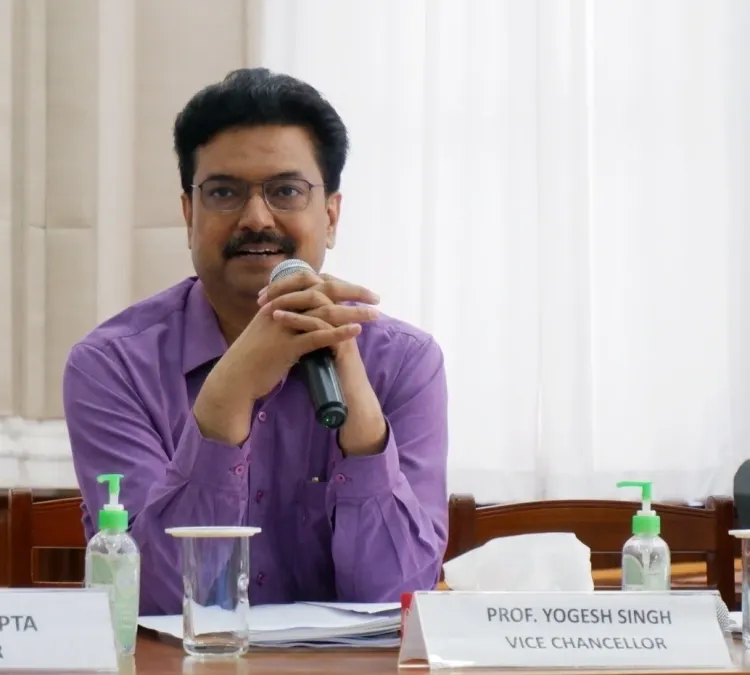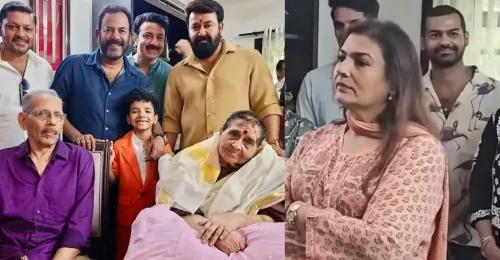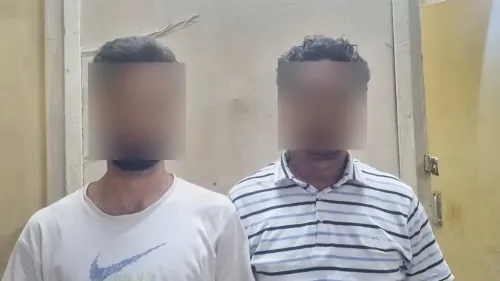What Lessons Can Be Learned from the College 'Cow Dung Episode'?

Synopsis
Key Takeaways
- Both sides should reflect on their actions.
- There are more civilized ways to protest.
- Tradition must be balanced with modernity.
- Social media can amplify controversies.
- Educational institutions need to foster constructive dialogue.
New Delhi, June 3 (NationPress) Delhi University Vice-Chancellor Yogesh Singh on Tuesday commented on the inappropriate actions of key individuals involved in the widely discussed "cow dung episode" that featured a college principal and a student leader, emphasizing that there are important lessons for everyone to glean from this incident.
The controversy erupted at Delhi University's Lakshmibai College when Principal Pratyush Vatsala applied cow dung on classroom walls in April, asserting it was a traditional method to mitigate heat.
This act, which was recorded and shared on social media by the principal, did not sit well with many, with a segment of students and faculty criticizing it as unscientific and unsanitary. The incident polarized opinions on social media.
As outrage escalated, Ronak Khatri, the President of the Delhi University Students' Union (DUSU) representing the National Students' Union of India (NSUI), protested against the principal’s actions by smearing cow dung on her office wall.
On Tuesday, VC Yogesh Singh stated to IANS that both parties could have chosen more appropriate methods to express their views.
“If the teacher wished to experiment with a traditional technique to cope with the summer heat, she might have started with her own home or office,” he remarked.
He also criticized the DUSU President's methods. “Khatri was equally mistaken in employing a protest tactic reminiscent of pre-Independence times,” he added.
“A DUSU President defacing the principal's office with cow dung is a thoroughly indecent act that should have been avoided,” he continued.
“Applying cow dung in the principal's office is unbecoming of a DUSU President. There are far more civilized ways to protest,” stated the DU VC, urging both sides to engage in introspection.









